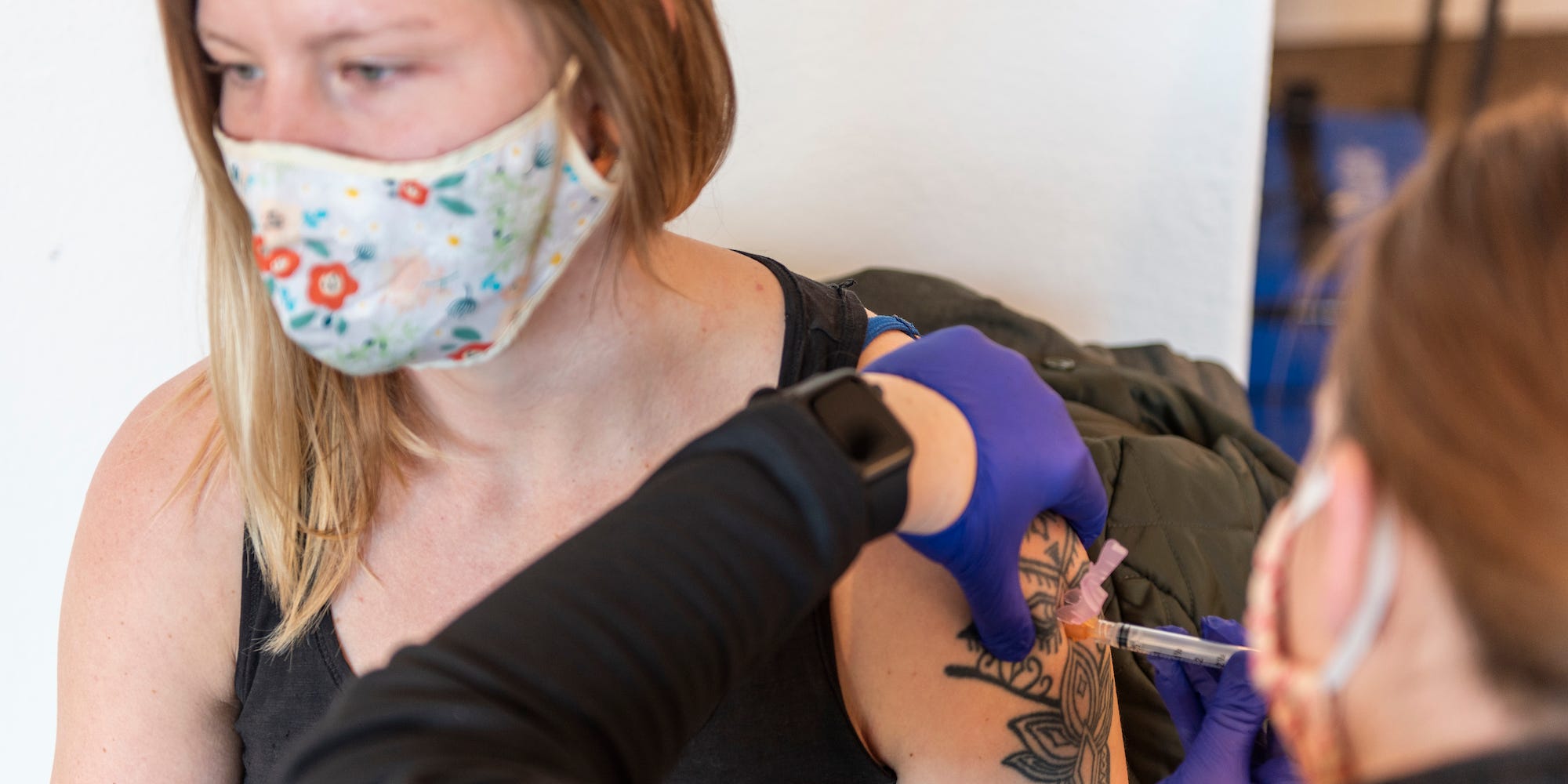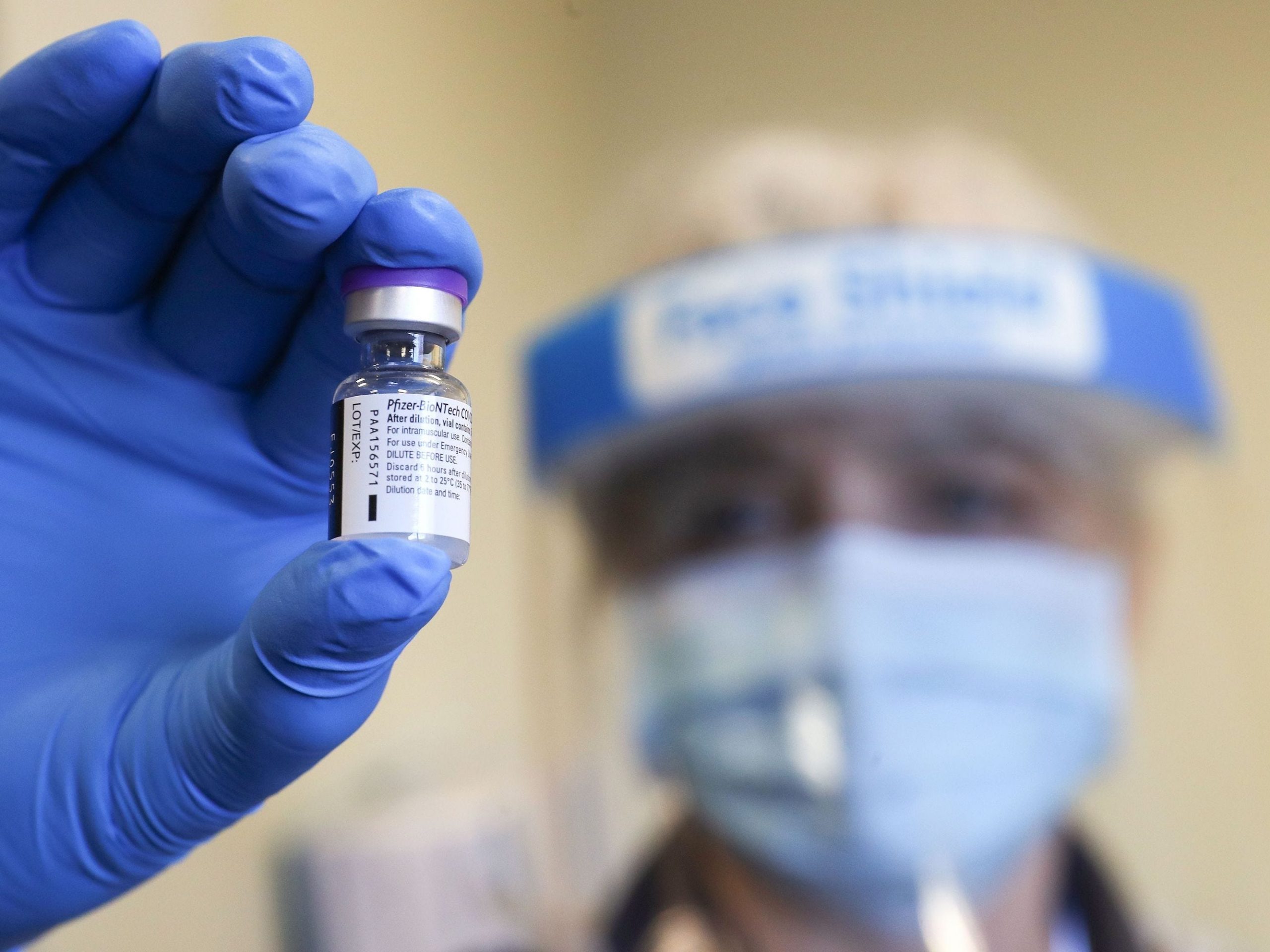
Photo by William Campbell/Getty Images
- The coronavirus vaccines being rolled out are really, really good.
- The first real-world data shows huge drops in transmission, infections, and hospitalizations.
- Vaccines are more than a silver lining to the pandemic — they’re our way out.
- Visit the Business section of Insider for more stories.
For coronavirus vaccines, the good news keeps on coming.
Scientists tracking the performance of shots from Moderna, Pfizer, and AstraZeneca are finding that they’re working well to protect people from COVID-19, living up to the results the vaccines delivered in human trials. Plus, even as the vaccines have been given to millions, no unexpected safety problems have cropped up.
That’s good because medicines can work differently in the real world than in experiments. Clinical trials simply estimate the efficacy of a drug – the real world is what actually matters. Recent research shows vaccinations benefiting a wide range of people, particularly those at high risk of serious disease.
Even with the good news, it could take years for vaccines to reach enough of the world’s population to curb the pandemic. About 265 million vaccine doses have been administered worldwide, according to Bloomberg News. At the current pace, it’ll take half a decade for 75% of the world’s population to be immunized, Bloomberg calculated. Plus, some of the vaccines may turn out to be less effective against variants now circulating in countries such as Brazil and South Africa.
Evidence is mounting that coronavirus shots work well
Still, as more people receive the shots, data has mounted from countries like the US, the UK, and Israel, confirming what virologists and public-health experts had hoped: these shots are the real deal.
Consider these key findings from scientists analyzing the global rollout:
- Two doses of Pfizer's vaccine were 94% effective at preventing symptomatic disease and 92% effective at preventing infections overall, Israeli data showed.
- A single dose of Pfizer's or AstraZeneca's shot reduced hospitalizations by as much as 85% or 94%, respectively, per data from Scotland.
- Allergic reactions to Pfizer's and Moderna's shots are extraordinarily rare in the US, with about 4.5 reactions per million doses - or 0.00045%.
- Immunized people who wind up getting COVID-19 had smaller viral loads, suggesting less risk of serious disease or easily spreading the virus to others, scientists in Israel found.
Some of this data has yet to be formally reviewed by independent experts. Given the urgency of the pandemic, results are frequently shared first as preprints, or as draft papers that have yet to be published in a scientific journal.
But the high-level takeaway is clear: these vaccines are working well. Scientist have identified no surprise side effects or safety issues. In general immunized people are experiencing the expected side effects, such as headaches and fatigue, that last for a day or two after vaccination, and then get better.

CHRIS JACKSON/POOL/AFP via Getty Images
Protection is broad, and vaccines seem to prevent COVID-19 from spreading
Protection is remarkably broad. The shots appear to drastically reduce the chances of getting COVID-19, and are particularly effective at preventing hospitalizations and deaths. For the small group of immunized people who do get sick, those illnesses are typically milder. And the shots likely tamp down transmission and contagiousness of the virus.
In hindsight, that may seem obvious, maybe even inevitable. But most experimental vaccines don't turn out to be this good.
A range of vaccine experts told Insider in September, before any late-stage study results were announced, that they were realistically hoping to have a COVID-19 vaccine that was 70% or 80% effective. The FDA was willing to greenlight any vaccine that showed at least 50% effectiveness. Both Pfizer's and Moderna's shots showed about 95% efficacy in trials, and the real-world data shows those benefits standing up.
What's more, results suggest the vaccines help prevent a gamut of COVID-19 concerns: asymptomatic infections, symptomatic disease, severe disease, hospitalizations, ventilator use, and more.
The coronavirus is far from defeated
When results from the first human trials became available, it wasn't clear if the vaccines would prevent all infections, leaving open the possibility that immunized people could unwittingly spread the virus as asymptomatic carriers. New data now suggests the vaccines will have a significant impact on reducing the spread, meaning vaccination doesn't just protect you but also your community.
To be sure, the war against the coronavirus is far from over. Some virus variants have picked up mutations that may diminish the protection from immunization. And researchers still don't know how long protection from the vaccines will last. We may need to get routine booster shots.
It can be easy to get lost in the flood of news about the vaccines, particularly as messages of optimism are cut with fears about variants of the virus potentially diminishing the impact. While there is still much work to be done, the first months of the vaccine rollout support a simple message for the public: these shots are extraordinarily safe and effective.
